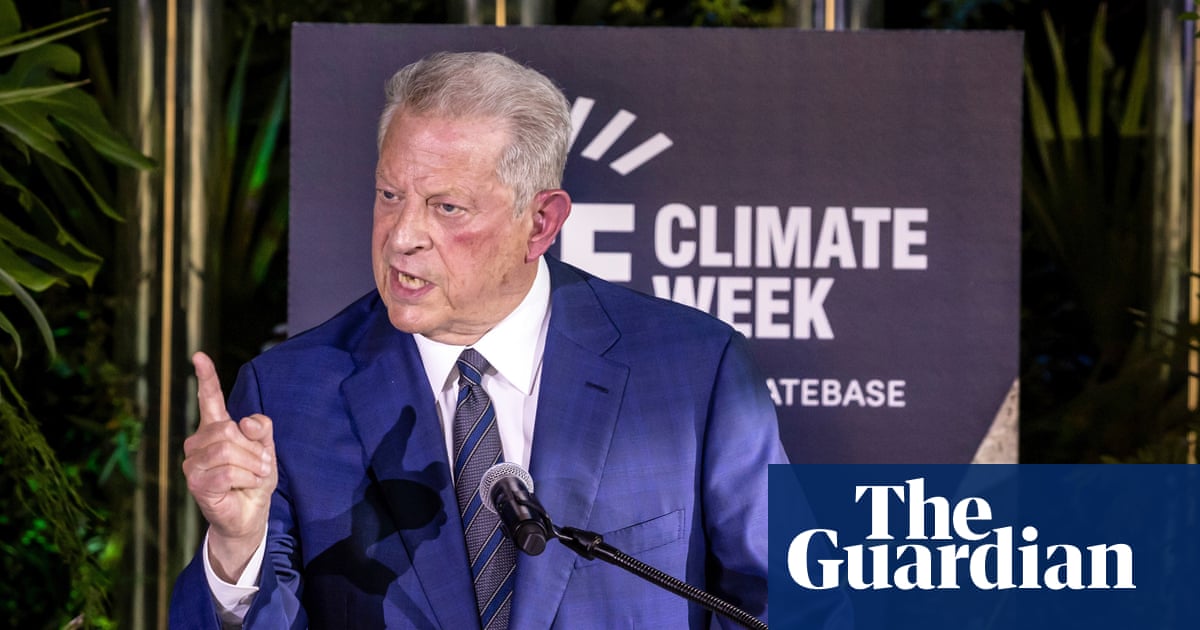The embattled US defense secretary, Pete Hegseth, has defended his most recent use of the encrypted messaging app Signal to discuss sensitive military operations, blaming fired Pentagon officials for orchestrating leaks against the Trump administration.
In an interview with former colleagues at Fox News on Tuesday morning, the defense secretary suggested the problems stem from former officials, appointed by this administration, for leaking information to damage him and Donald Trump, adding that there was an internal investigation and that evidence would eventually be handed to the justice department.
“When you dismiss people who you believe are leaking classified information … Why would it surprise anybody if those very same people keep leaking to the very same reporters whatever information they think they can have to try to sabotage the agenda of the president or the secretary?” Hegseth said.
In a statement posted on X over the weekend, the three dismissed top officials – Dan Caldwell, Colin Carroll and Darin Selnick – wrote that they were “incredibly disappointed” by the way they were removed, adding that “unnamed Pentagon officials have slandered our character with baseless attacks on our way out the door.”
Hegseth, in the interview, also confirmed the news that his chief of staff Joe Kasper will stay at the Pentagon, but it’s “going to be in a slightly different role”.
The controversy stems from recent reporting in the New York Times, after a second Signal chat was identified where he is again believed to have shared sensitive operational details about strikes against Houthis in Yemen – including launch times of fighter jets, bomb drop timings and missile launches – with a group of 13 people, including his wife, brother and personal lawyer, some of whom possessed no security clearance.
Hegseth dismissed those reports in the interview, characterizing criticism as politically motivated attacks.
“No one’s texting war plans,” Hegseth told Fox and Friends. “What was shared over Signal then and now, however you characterize it, was informal, unclassified coordinations for media coordination among other things.”
An earlier revelation in March detailed how Hegseth had shared similar military information in another Signal chat that included Jeffrey Goldberg, editor-in-chief of the Atlantic, who later published the messages after Hegseth and the White House insisted they were not classified.
The first chat leak appeared to be a violation of the defense department’s own classification guidelines, and it triggered an investigation by the Pentagon’s inspector general into his use of the encrypted messaging app.
The backlash against Hegseth’s misuse of Signal while running the government’s largest and most funded office – that could get a budget of $1tn – has only gotten more intense over the last few days.
Representative Don Bacon, a Republican and former Air Force general who chairs the House armed services cyber subcommittee, became the first member of the GOP to openly support Hegseth’s removal.
“I had concerns from the get-go because Pete Hegseth didn’t have a lot of experience,” Bacon told Politico. “If it’s true that he had another [Signal] chat with his family, about the missions against the Houthis, it’s totally unacceptable,” he added later.
Former chief Pentagon spokesperson John Ullyot wrote in a Politico Magazine opinion piece over the weekend that “the building is in disarray” and that “it’s hard to see Defense Secretary Pete Hegseth remaining in his role for much longer.”
Retired US navy admiral James Stavridis similarly condemned Hegseth’s actions, telling CNN: “There is absolutely no reason on the planet Earth he should be doing that and he knows it.”
Despite the professional controversies – and the fact that the current administration appointed the officials he is now attacking – Hegseth portrayed himself as a disruptive force against entrenched interests at the Pentagon.
“They’ve come after me from day one, just like they’ve come after President Trump,” Hegseth said. “A lot of people come to Washington and they just play the game … That’s not why I’m here. I’m here because President Trump asked me to bring war fighting back to the Pentagon every single day. If people don’t like it, they can come after me.”

 2 hours ago
6
2 hours ago
6













































